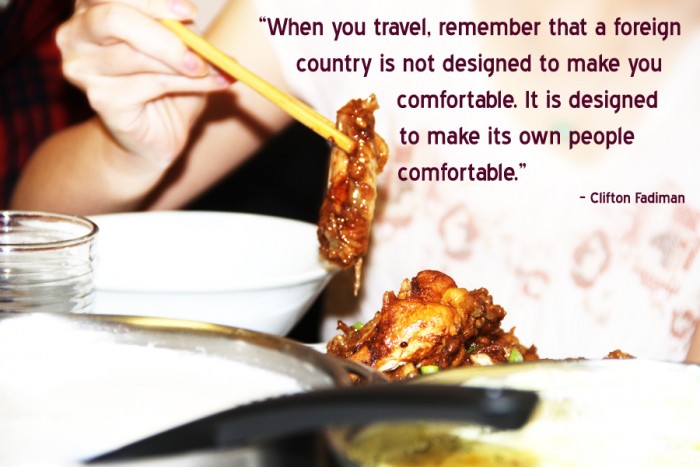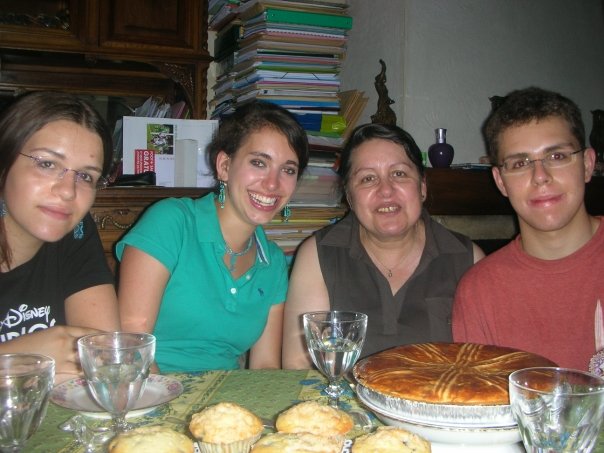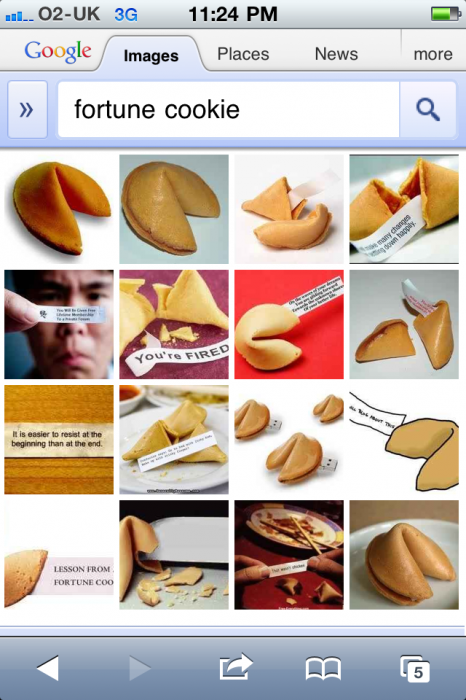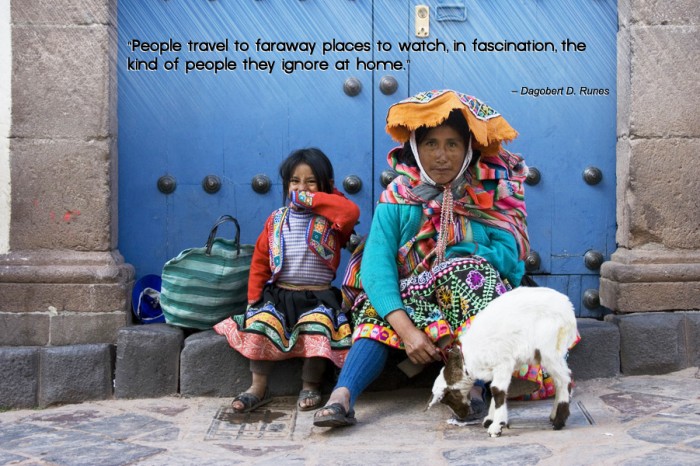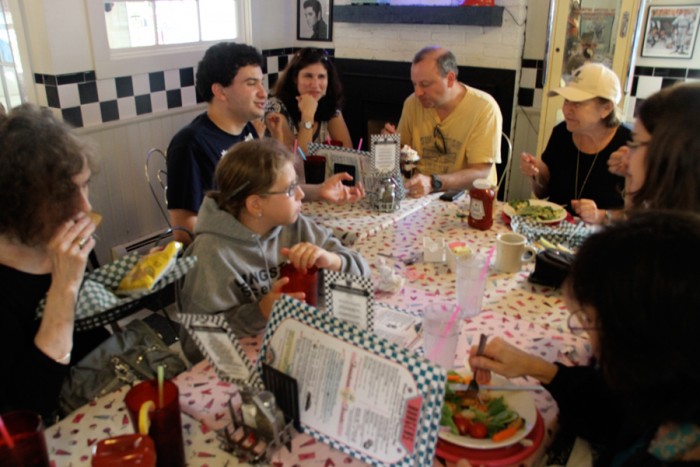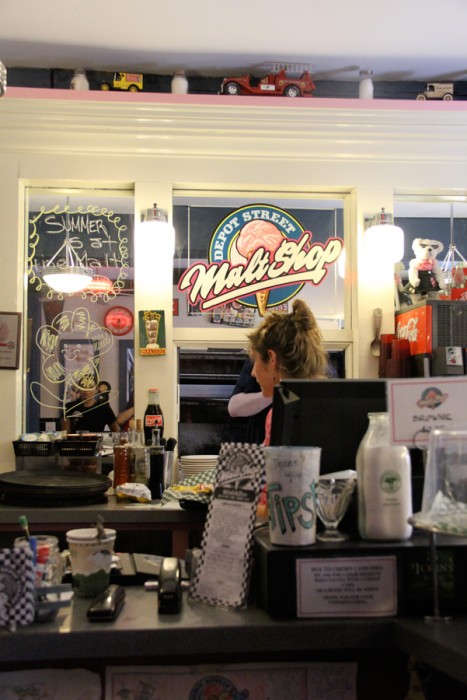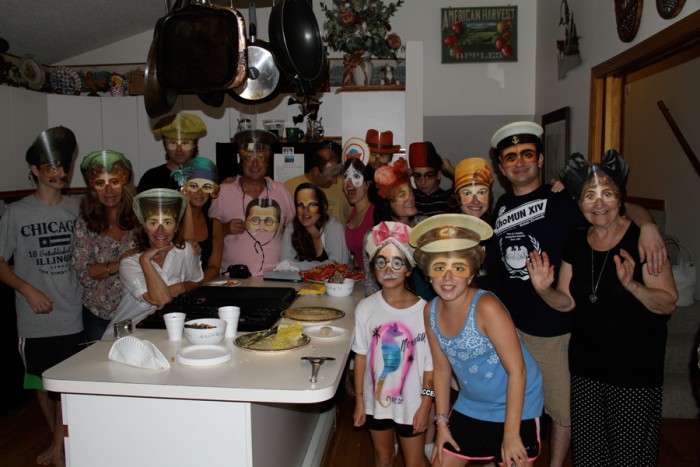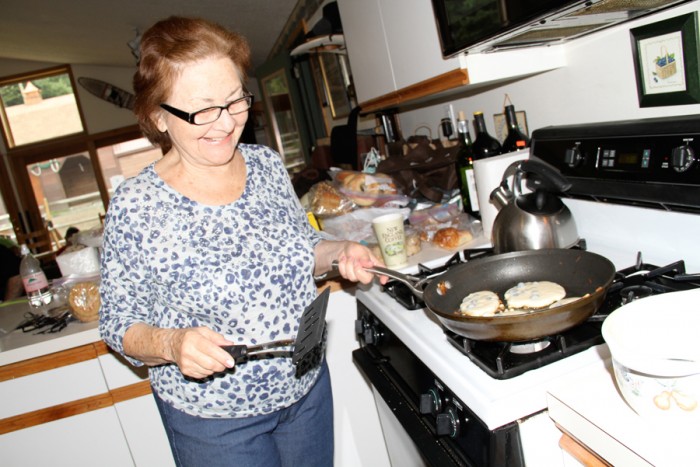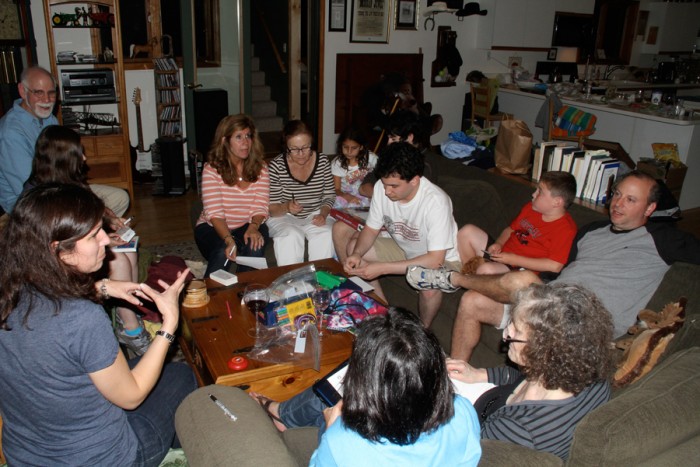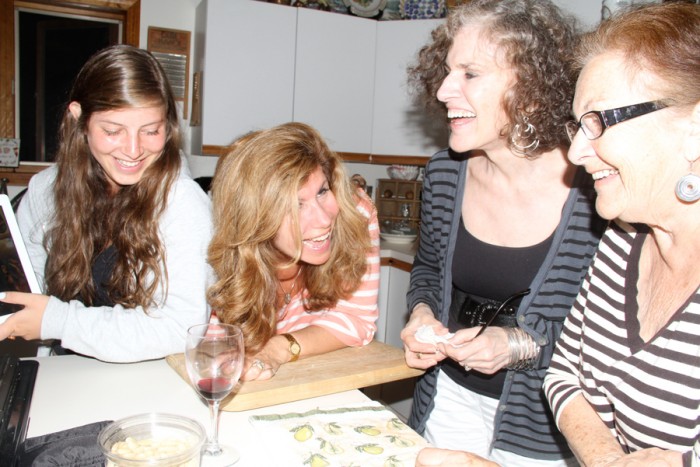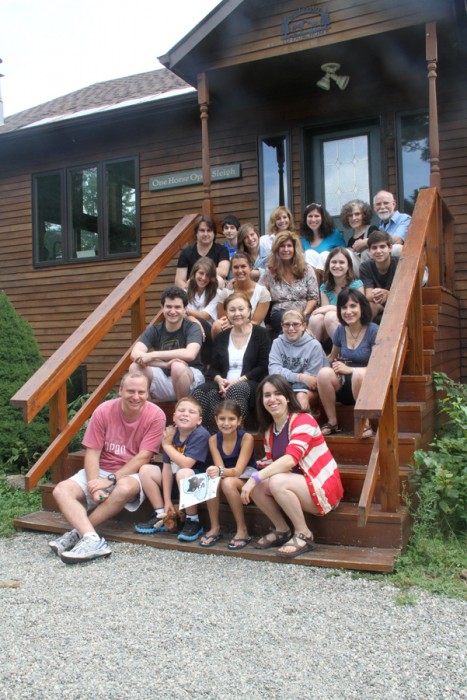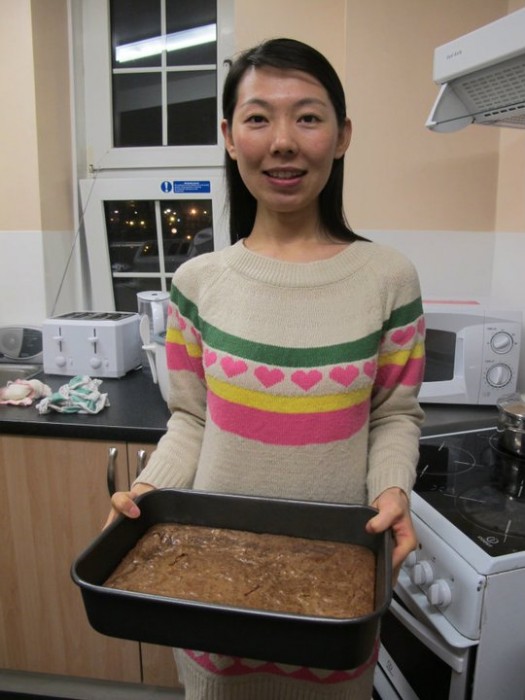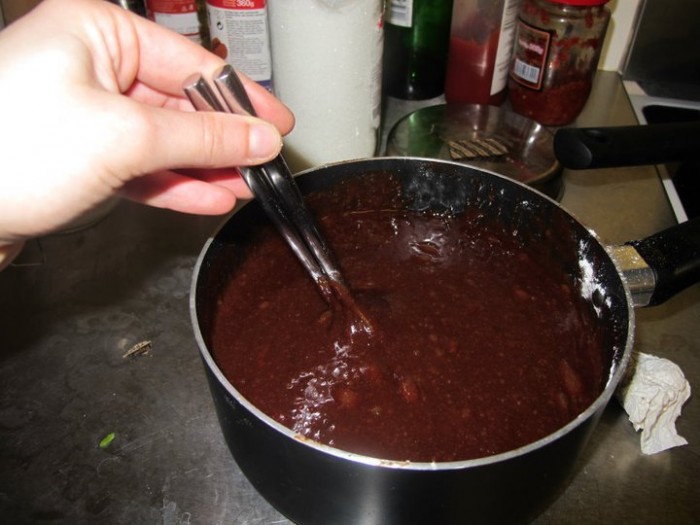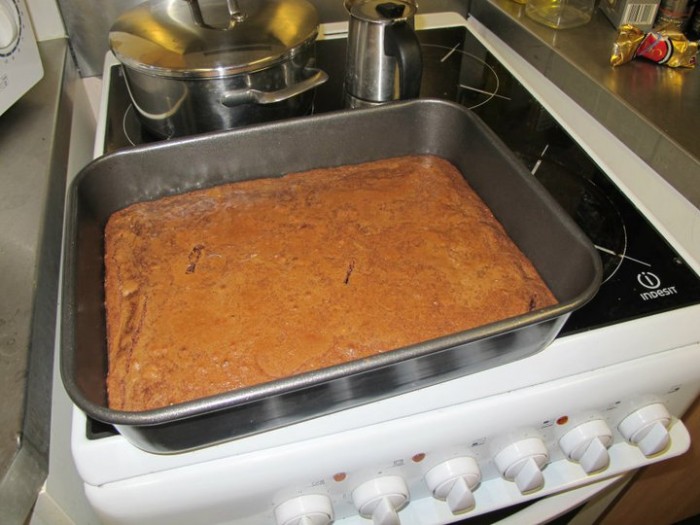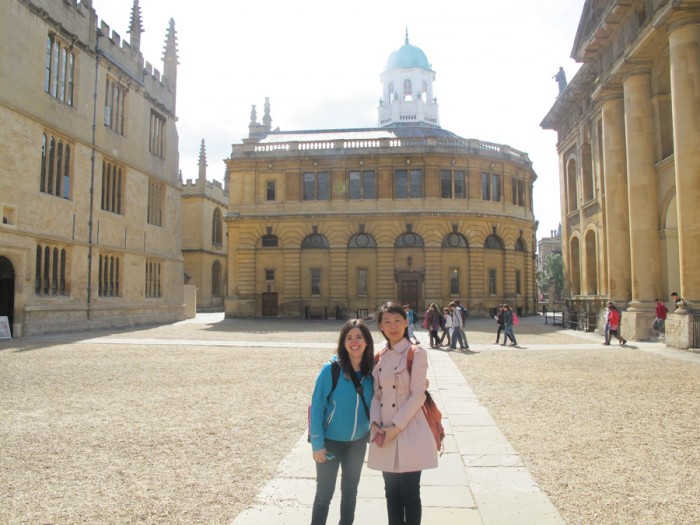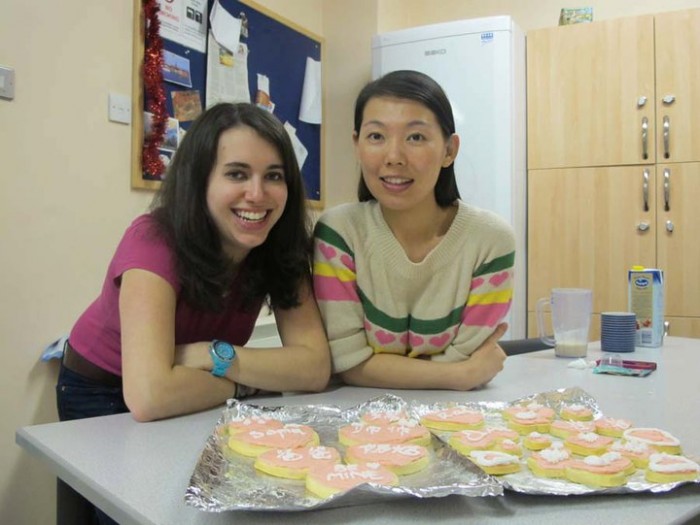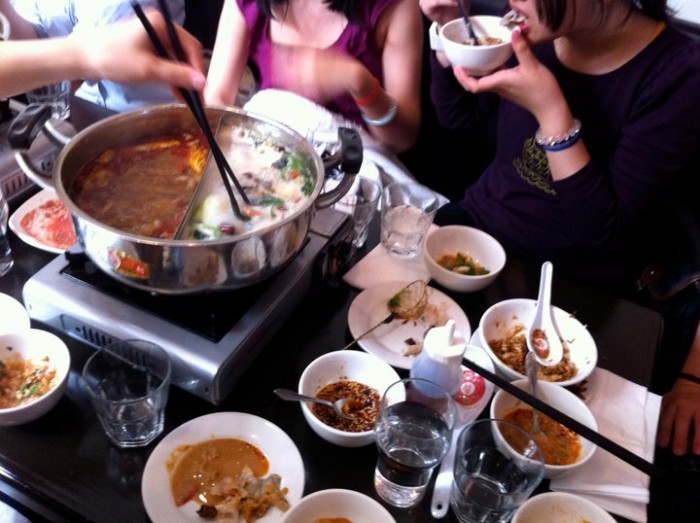September 4th, 2011 by Rachel | Country: China | 1 Comment »
“When you travel, remember that a foreign country is not designed to make you comfortable. It is designed to make its own people comfortable.”
– Clifton Fadiman
Tonight, I was having a farewell dinner with my flatmates and a few other friends who have been living with me for the past year and many of them are Chinese. These Chinese friends cooked authentic Chinese cuisine and shared their chopsticks with us. Chopsticks and silverware are materials that distinguish us, the Chinese and some other Asian countries and the Westerners. When I was a little child and first encountered chopsticks in a Chinese restaurant, it was a moment that sparked my realization that the world has many different lifestyles and all human beings live their day to day lives differently.
I tried to use the chopsticks throughout my life whenever I encountered them at Chinese restaurants, but I’ve always given up on using them and quickly returned to using a fork and knife, the tools, with which I was most familiar with and comfortable using.
I’m venturing to China. I need to learn to use chopsticks because it is a tool that is commonly used in the country to transfer food from the plates to our mouths. When traveling, I leave my American culture behind except when educating my host families about my culture. The world does not revolve around me by providing me the American culture wherever I go. I need to adapt to the lifestyle of another country – be it learning another language, eating with chopsticks or forks and knives with pizza, living in a cramped space and old homes, or eating spinach sauce on a bread. If I keep my culture with me at all times, I will never learn about the other culture.
Sophia and other Chinese friends taught me how to use chopsticks while living in London. I practiced using them and never returned to using forks and knives when having meals with my Chinese friends. I’ve observed them using the chopsticks effortlessly. While I have improved my skills in utilizing them a little as they taught me techniques of how to hold them and open and close the tips of the sticks, I still struggle to pick up food and even if I manage to pick up the food, it often gets dropped back to the plate by accident. My hands hurt after having a whole meal.
If these Chinese people can eat effortlessly with chopsticks, I can do it. It’s a matter of practicing, although for me, as an adult, growing up where I was surrounded by the western culture, it is expected to be harder. I think that learning to use chopsticks is like learning a foreign language where children are able to acquire the skills more spontaneously than adults, but it is not impossible to learn the skill. Once I am immersed in the country, observing the daily use of chopsticks, using them on regular basis, I will improve and adapt to them quickly like those who learn Spanish in Spain or Peru or Argentina.
We shall see how it goes when I am in China.
September 4th, 2011 by Rachel | Country: Other | No Comments »
When I travel and stay with host families, my duties not only include participating in host families’ activities, having good manners, and learning about their culture, but also teaching them about my own culture. One of my goals when traveling is to teach them information that they could never learn in classroom and/or from a textbook. I think of this travel experience as a way to build positive relationships between people from different cultures and countries while we are living in a time where so much hatred towards different countries is being portrayed by the media.
Being an American exchange student living in another country with a host family allows me to change their image of Americans, which is usually negative because of how the media portrays us, by not only teaching them the positive aspects of the culture, but also presenting good manners. One host mother said to me, “Most host families here in France will not host Americans because they think they don’t have good manners.” Foreigners think Americans are loud, unsophisticated, rude, materialistic and not to mention, have horrible political opinions because that is how the media portrays us. The media shows Americans believing in war, Tea Partiers protesting against health care and taxes, voting against restricting the usage of oil, and American CEOs racking up maximum profit and not paying enough taxes or donating funds to charities.
In reality, not all Americans are greedy and selfish and many do believe in the common good – many, including CEOs, do donate hundreds and thousands and millions of dollars to charities. A large number of Americans are not loud and many are the nicest people whom we can meet. Many Americans do vote for better heath care and higher taxes to improve infrastructure, education and the lives of human beings. Many Americans ride bikes or walk to work and school instead of driving and are active in recycling. Americans bring in the greatest innovations that become beloved by many around the world – iPhones, Facebook, YouTube, McDonalds’, and Coca Cola. This is what foreigners need to learn from me and other Americans. This is also true for foreign exchange students who come to the US and stay with American host families. Our view of their countries, constructed by the media and textbooks, is likely very different from what they would share with us.
Aside from breaking the stereotypes of our country, I also share the tales of my lifestyle with my host families by bringing in pictures. I show them pictures of my high school prom dance, graduation, friends in various social settings, my family and vacations. By showing them photos, I am teaching them what activities we, Americans, generally do with friends, such as going to school dances and hanging out at Starbucks with friends. I am also educating them about our relationship with our families and how we spend time together. Host families also learn about our customs, such as seeing how we celebrate our graduations and birthdays.
I should note that I am not saying that I believe in only teaching them the positive image of our country. I am also very open to discussing problems that we have, such as high employment, addiction to oil, and lack of quality education for children, after all, every country in the world is not perfect. When sharing the negative aspects of our country, I explain to them why the issues exist and what Americans and I think about how we should solve the problems. As a result, host families learn that we are not ignoring the problems and how we want to combat them.
In a nutshell, our responsibilities in being an exchange student include:
- Share the positive image of our country.
- Present good manners.
- Bring in photos and share with them to teach about our culture.
- Be open to sharing issues.
Above all, being open to answering questions host families may have is critically important. Host families are not just there to provide us a shelter, bed and food. They are also there to learn about a whole new world.
September 4th, 2011 by Rachel | Country: China | No Comments »
My aunt who reads my blog and saw the entry about Sophia’s dream to open a cafe and bakery, suggested that the cafe and bakery could be named “Good Fortune.” This brought up a very interesting subject as the word, “Fortune” was mentioned.
Well, I have to break the news. Fortune cookies are rare in China! It was invented in the US. I’m not joking!
I asked Sophia about eating fortune cookies several months ago and she said, “huh?” I told her that it’s a Chinese cookie and that she had to know what it was and it’s served in all Chinese restaurants. She said, “No…” I pulled out my iPhone and showed her pictures of the cookie from the Google search and she said that she has never seen that thing before and laughed and said it’s obviously an American invention. Well…well…I have a lot to learn about the Chinese culture.
After having done some sleuthing to find out from where the fortune cookie exactly originated, I found that, according a New York Times article, “The Japanese may have invented the fortune cookie. But the Chinese people really explored the potential of the fortune cookie. It’s Chinese-American culture. It only happens [in the US], not in China.” According the article, the popularity of the fortune cookie began in the early 20th century by Chinese immigrants living in the US. Fascinating.
September 2nd, 2011 by Rachel | Country: Other | No Comments »
August 27th, 2011 by Rachel | Country: United States (home) Vermont | No Comments »
It took one family feud, a divorce, and a remarriage for us to find a hidden treasure box filled with much happiness, humor and fun. We found the treasure box last October when one relative had a second wedding that reunited many family members together after having had little communication for years.
Shortly after my great-grandmother passed away eight years ago and left a vacation property to her three children, a family feud was created by some relatives regarding who could own the vacation property. These said relatives caused a rift between many of the family members and abandoned many of us from a vacation property that is deeply rooted in our own family history. Thus, we found a new “home” for our family reunion where we were able to revive the good ol’ traditions.
We found a beautiful rental property in Stowe, Vermont, where 21 family members were able to fit comfortably in one big house and share many positive dynamics of life – cooking, barbecuing, baking goodies, playing games, laughing, chatting, photographing, gazing at the stars, riding and feeding the horses, etc.
Stowe, a small town that is notably known for its ski resort and is a homeland to the Von Trapp family from The Sound of Music, couldn’t be a more perfect place for people coming from all various ages – children to elders. A man in his 60′s swooshed down the Alpine Slide while seven year-olds went down too. Hiking trails with magnificent waterfalls and mountains were found on every corner of the street. There was a lake for kayaking, fishing and swimming. There was a little museum at the Von Trapp Family Lodge for those who wanted to explore some history. There were many opportunities for nature and landscape photography.

The town is so quirky as not one chain store existed and all restaurants were independent. The Malt Shop, a retro diner on Depot Street, had something for everyone on their menu – grilled cheese, salads, chicken fingers, eggs, turkey sandwich, and etc – and everyone was so happy with what we ate for lunch that we went back there again a few days later for another lunch. Many stores were filled with arts, crafts and antiques.
The moral of this story is that bad events can open a door to many joys and wonderful events filled with happiness…and also, no towns are too small for too much fun for all ages!
August 27th, 2011 by Rachel | Country: Other | No Comments »
August 19th, 2011 by Rachel | Country: Other | No Comments »
August 18th, 2011 by Rachel | Country: Great Britain | No Comments »
I introduced Sophia to a traditional American dessert that is beloved by many in the United States, brownies. While many of us normally would pick up a Betty Crocker or Duncan Hines box of brownie mix from a grocery store in the US, I made the brownies from scratch. Betty Crocker and Duncan Hines do not exist in China. Therefore, it was critically important for me to be able to teach Sophia in a way that she can bring her knowledge back to China and re-create what we have made in London so that she could introduce the brownies to her Chinese friends. As all of the ingredients, butter, flour, chocolate, sugar, eggs, vanilla and walnuts, exist in China, it is absolutely possible for her to bake brownies as long as she can install an oven into her home.
Here is the recipe for homemade brownies that we baked:
Ingredients:
- 1 cup of butter
- 4 squares unsweetened chocolate (or 1 1/2 cup cocoa and 1/2 cup butter)
- 2 cups of sugar
- 4 eggs
- 2 teaspoon of vanilla
- 1 1/2 cup of flour
- 1 cup of chopped walnuts
Step One: Preheat the oven to 350 degrees Fahrenheit or 177 degrees Celsius.
Step Two: Melt butter and chocolate and mix them.
Step Three: Stir in sugar.
Step Four: Add eggs and vanilla.
Step Five: Stir lightly.
Step Six: Stir in flour and nuts.
Step Seven: Spread batter in a deep pan.
Step Eight: Bake 30 minutes.
A credit should be given to my dear friend, MJ, who provided me with the recipe.
August 18th, 2011 by Rachel | Country: Great Britain | 1 Comment »
The most important trip you may take in life is meeting people halfway.
~Henry Boye
Once upon a time there was a woman from the US, the most powerful country today, and a woman from China, a country that is going to be powerful in this century. The woman from China, Sophia, began her journey in London last summer by beginning to learn to speak English by taking an English as a Second Language course. Then, the woman from the US, I, arrived in the fall, during the rainy weather, in London.
One day, these two very confused girls went to the office of their department to sort out their schedules and they so happened to be in the same space at the same moment. Shortly after trying to put together some puzzle pieces regarding their school issues, they introduced themselves to each other. “Where are you from?” I asked the slender woman with beautiful long black hair.
“China,” said Sophia, “Where are you from?”
“The States,” I said.
We exchanged each other’s phone numbers and the rest became history.
She has been my cooking partner, study partner, travel partner and partner-in-crime. While studying for our masters in anthropology, we exchanged our stories and knowledge of our own culture and home life.
We spent the year in London enjoying all the joys of baking in our kitchens. Introducing Sophia to western cuisine, particularly desserts, such as brownies, rainbow cake, and banana bread, was truly an eye opener for her as many of them do not exist in China or are very rare. I’ll never forget watching her eating the chocolate chip cookies and while I was talking, she said, “Sorry to interrupt, but these cookies are DELICIOUS!” I laughed.
Til this day, I am still stunned by the fact that ovens are rarely found in homes in China. I remember when Sophia first told me about this situation, I said “WTF?!” This was a shocking moment because I wondered how can she get to enjoy the scrumptious bites of banana bread, pumpkin cookies, blondies, Valentine’s cookies, pizza, bread, lasagna and all the dishes that are baked in an oven. In my home in America, I normally use the oven several times throughout the week, and so it’s really an integral appliance in our family life. However, having seen how she cooks as a Chinese without the oven, I realize that we can still enjoy wonderful food, but with just a different taste palate like stir fried vegetables and meat and hot pot, a traditional Chinese dish I newly discovered.
For those who do not know what a hot pot is, it is a pot that boils water and we put all kinds of food, including meat, vegetables and fish in it and cook it. The pot cooks the food unbelievably fast. We also add spices to add rich taste to the food. According to Sophia, the hot pot is a core material to social gatherings among friends in China. A hot pot is typically placed in middle of a table and friends gather around the table and take food out of the pot with chopsticks and transfer it to the plates. While nibbling on the food from the hot pot, people chat.
“I think I should open a bakery,” Sophia giggled.
“Maybe you should?” I said.
“I’m kidding,” said Sophia.
Months passed by. “You know what, Rachel?,” Sophia said one day at the British Library, while we were taking bites of a very delicious blueberry cheesecake, “I thought I was joking about opening up a bakery, but I am now really serious about it.” In the past several months, Sophia and I have been discussing her visions to open a bakery in China with a goal of opening up the Chinese to different cultures and broadening their horizons without leaving their homeland. We will see where she will proceed next…
Then aside from learning about our day to day life of eating in our homeland, we also discussed political and economic situations and stereotypes. This topic will follow in the next post.
